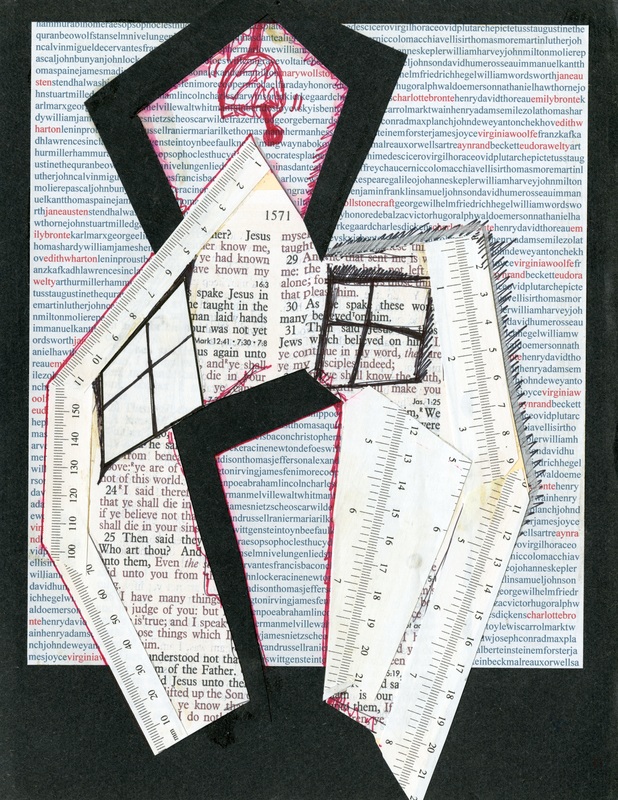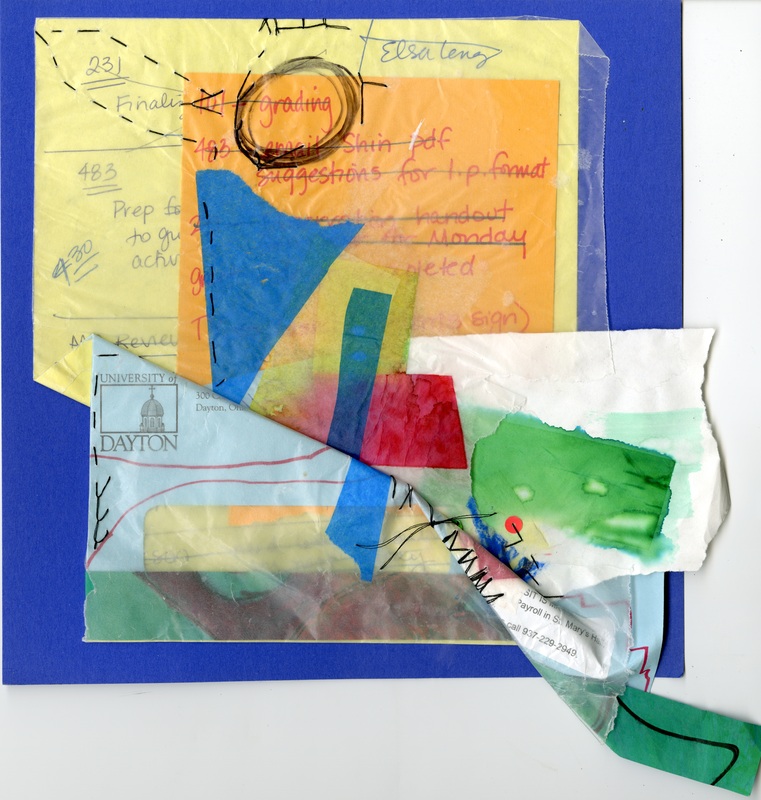|
"The history of curriculum is tied to religion, democratic ideals of our society, industrialization, and ensuring students measure up and fit into the confines set for them. It is hard to see through it and hard to see out of it. It is built on a foundation of literature, thought, and ideals that may not apply now. And I think it is being dismantled but still holds its structure." (PB, 2014). |
"Today, at a training, I was again encouraged to find more ways to connect my teaching to current technology. Yet, personally, I am entrenched in the hand…writing, creating, and even processing through these visual constructions that are time consumingly sewn. This relates, I think to my need to make lists, to cross things off the lists, and to hold onto the lists. The need has grown in correspondence with my stress level - it is a way of remembering. PB wrote to me today and apologized for asking so many questions. I giggled a bit as I know I've said the same thing to EG at least twenty times over the last year. She noted " I have a notebook that I carry with me. Anytime I think of another question to ask you, I write it down. I make lists of the things I need to do or things I don't know how to do so I can remember to ask. It helps me feel calmer." Yes, me too PB, me too. (PI, reflective journal, 12/2013)
|
In their 2010 article, Speaking in Tongues: The Uncommon Ground of Arts-Based Research, White, Garoian, and Garber invite us to consider if "all acts, associated with artmaking, such as repetitive processes, could be considered research" (p. 135). And further to consider the way in which those non-narrative or acts of verbal and visual collage create spaces for us to engage in discourse. "Like the exploratory, experimental, and improvisational processes of [the] cultural practices [of craft, of design, of fine art] as "research," the betweenness of aphoristic writing invites correspondences that are inconclusive, ambiguous, and incomplete. Such resistance to synthetic closure opens a liminal and contingent space where readers' re-readings and mis-readings of our aphorisms, ... can potentially connect with readers' own pithy stories." (p. 137).
White, J. H., Garoian, C.R., & Garber, E. (2010). Speaking in tongues: The uncommon ground of arts-based research. Studies in Art Education, 51(2), 134-146.
White, J. H., Garoian, C.R., & Garber, E. (2010). Speaking in tongues: The uncommon ground of arts-based research. Studies in Art Education, 51(2), 134-146.

